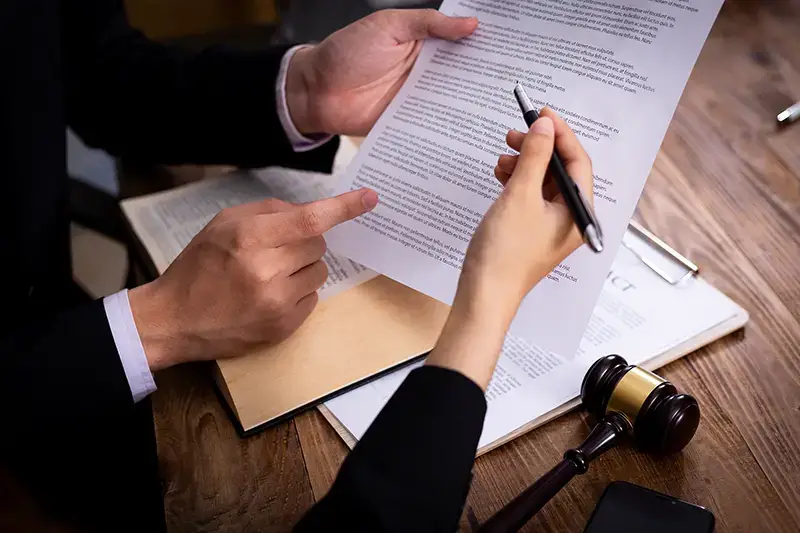
When you apply for a driver’s license, you must pass a test of your knowledge of the traffic laws and rules of the road that you learned from studying a driver’s manual. When you open a small business, no one hands you a manual to study in order to learn fundamental principles of law pertaining to contracts, employment, taxation, employee benefits and other legal issues that routinely arise in business.
Small business owners need to be able to recognize when an activity related to their business requires the assistance of a lawyer. Just as you learned from studying the driver’s manual that you must come to a complete stop when you approach a red, octagonally shaped sign; the seven essential legal tips that follow can help you recognize when to contact a business law attorney for advice and representation.
A verbal contract can be as binding and enforceable as a written one
Contracts are the backbone of the business world. Every time you call a supplier and request a delivery of goods creates a contract that is as valid as a 15-page written and signed document. The problem with verbal agreements has to do with proving what the parties agreed to should it become necessary to go to court to enforce them.
Written contracts avoid disputes over the terms of an agreement. Besides, the law requires that the following types of transactions must be in writing:
· Agreements for the sale of goods having a value of $500 or more.
· Agreements for the sale or transfer of real property.
· Agreements that cannot be fully performed and completed within one year.
Contract laws vary from one state to another, so speak with a business law attorney at Herrig & Vogt about formalizing agreements related to your business.
Select and form a business entity
Deciding on the structure of your business should be the first thing you do when starting a business. The most common forms of business structures are the following:
· Sole proprietorship.
· Partnership.
· Corporation.
· Limited liability company.
The type of structure you choose will affect how decisions are made, how taxes are paid and the extent of the personal liability of owners for the debts and liabilities of the business. For example, a sole proprietorship is easy to set up and operate, but the personal assets of the owner may be seized to satisfy liabilities related to operation of the business. Talk to an attorney about the structure that is best for your business.
Take steps to protect intellectual property
Turning the name and logo of your business into a brand to attract and retain customers takes time, effort and the expenditure of money that can be lost when used by another business without your permission. This is only one example of the importance of taking steps to protect your rights to intellectual property through patents, trademarks and copyrights.
A consultation with an attorney can identify intellectual property concerns and address them before problems arise. For instance, an attorney can determine whether the logo design you created infringes on the trademark of another company before you begin using it and risk being sued.
Protect personal data collected from customers and employees
Your business has a legal obligation to protect the personal information collected from visitors to its website, customers and employees. State and federal laws impose an obligation on your business to safeguard all data it collects against cyberattack. The laws also require the posting of privacy notices with sanctions imposed on businesses that fail to comply.
Before engaging in an activity that involves collecting personal data from or about a person, you should get advice from an attorney to ensure that it does not violate the law. For example, a policy of ordering credit reports on all new employees is a violation of federal law unless you first obtain the person’s consent.
Keep business and personal financial accounts separate
The protection from personal liability afforded owners by formation of a corporation or limited liability company as a business structure can be lost when bank accounts and credit cards of the business are used to pay personal expenses of its owners. Commingling personal and business money and assets creates legal issues and should be avoided.
Formalize business arrangements with co-owners
The best way to avoid disputes and conflicts between co-owners is by having a formal, written agreement prepared at the start of the relationship. The agreement should clearly define the rights, responsibilities and duties of each owner to be relied upon to resolve disagreements that invariably arise in any business operation.
Your attorney may have suggestions about issues to address in the agreement. For example, the attorney may recommend adding a procedure to deal with the death or withdrawal from the business of one or more of the owners.
